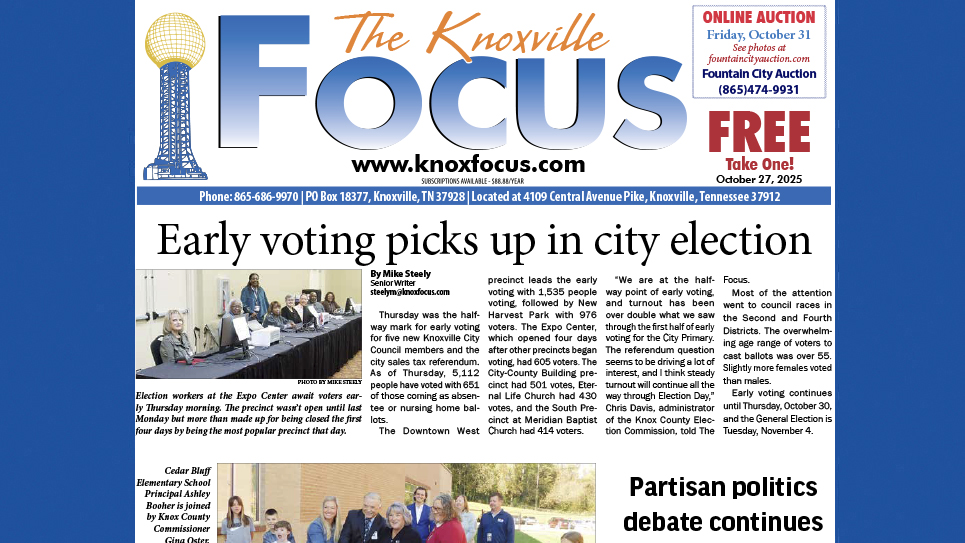Southerners are generally a friendly bunch, certainly by comparison to, for instance, New Yorkers or Parisians during the late summer tourist onslaught. My son-in-law from Ohio tells the story of our trip to pick up a boxer for the farm tractor. When the deal was consummated we were treated to breakfast and a southern “visit” by the farmer and his wife. SIL was, as the British say, gobsmacked.
However, in my dozen trips to the Portland, Oregon area, friendliness is not limited by the Mason Dixon line. Everyone I’ve met in Portland could be southerners, except for their politics. Portland is the deepest blue you can imagine.
On a previous trip Becky and I were puzzled about pedestrian and traffic rules, so we asked a guy in the grocery parking lot. He replied, “You’re not from around here, are you?” We told him we were from Tennessee and visiting our daughter. He was from Georgia and the parking lot “visit” of southerners went on and on. He told us he was starved for conversation, imagining himself the only conservative in Portland.
The election is over, except in Broward County, Florida where “dangling chads” and boxes of lost votes are discovered in every election. What is wrong with Florida? Volunteer football fans might ask the same of Florida Gator fans. Perhaps a lot of Yankees migrated to Florida and brought with them their perspectives and politics. The same happened in Colorado as crazies in California flocked there and turned Colorado blue.
We took our political yard signs down after the election, but in Portland neighborhoods non-candidate yard signs never come down. In 2016 I wrote about the dearth of Hillary Clinton signs in Portland and the profusion of Bernie signs. There were no Trump signs. I did see an American flag or two this Veterans Day. What intrigues me are the perpetual signs in most yards and their remonstrations (see photo).
In our “divided states of America” the perspectives of liberals and conservatives are considered polar opposites. (I omit consideration of anti-American leftists like Antifa and George Soros.) Though I describe myself as conservative, there are people more conservative and more liberal than me on many issues.
I have been working on my newest science fiction novel and, as a result, thinking about these concepts. Even if you’re not a science-fiction buff, most have heard of the Borg from Star Trek. The Borg are like ghouls or zombies forcibly integrated, through technology, and no longer think or act independently. Picture the mob outside the Supreme Court building as Justice Kavanaugh was sworn in.
Good people can agree to disagree. However, some believe they possess a moral high ground because they feel more intensely than others. Therefore, the merits of a differing perspective must be inferior and an equality of notions is therefore impossible. This is where we are in America.
When we are in Portland we worship on Sunday morning at the neighborhood Westminster Presbyterian Church. Becky and I began as Presbyterians, though my path to Methodism was more circuitous than Becky’s. The Westminster Church is beautiful, the choir is exceptional and the minister’s message is always thought provoking. As I sat among a crowd of the faithful, I felt connected to people who politically see the world differently than me. And then I thought: the separation of church and state is overrated and is contributing to America’s troubles.
There is no mention of separating church and state in the Constitution. In regard to religious issues, the First Amendment guarantees that “Congress shall make no law respecting an establishment of religion, or prohibiting the free exercise thereof.” We hear much about the establishment aspect of the First Amendment, but little about the prohibition clause.
Our American revolution was fought for the reasons articulated in the Declaration of Independence. You should read why we went to war. After that difficult eight year conflict, the Founders were sensitive to state religions as existed in England, and therefore the Bill of Rights (the first ten Amendments) guarantees that the government will not establish a state religion or interfere with a person’s religious practices. However, I believe this has become politicized and perverted.
We find ourself in this situation after Supreme Court Justice Hugo Black, in a 1947 SCOTUS decision, used Thomas Jefferson’s words of reassurance to Baptist’s in Danbury Connecticut. Jefferson said there should be a “wall of separation” between government and religion. Jefferson’s words from 1801 are NOT in the constitution.
The German philosopher Hegel is credited with the dialectic concept which bears his name. Dialectical conversation begins with a thesis and is then countered by an antithesis or opposing view. When the conversants have mutual respect for one another the sharing of ideas results and a synthesis can emerge. Modern television panel “discussions” are anything but a Hegelian dialectical conversation because entrenched ideologies only desire is to score political points.
In times past, Americans with different perspectives could debate under the rubric that all were Americans and had the country’s best interests at heart. I no longer believe this. Party, power and rigid ideology have become the new flags of allegiance.
I believe we must return to our roots, our founding core principles if we are to survive as a nation. Without getting too preachy or dogmatic, I believe the best framework to consider someone else’s different perspective is under the rubric of God/Christ/Spirit.
In the synoptic Gospels Jesus was asked what is the greatest commandment. Combining texts from Deuteronomy and Leviticus he said, “Love the Lord your God with all your heart, all your soul, with all your mind, and with all your strength. The second is this; Love your neighbor as yourself. There is no commandment greater than these.”
Suffice it to say, if everyone sought God and loved their neighbor as themselves we would do a lot better as human beings and as a nation. Utopia is an allegorical book written by Thomas Moore where he concluded that utopia exists nowhere. However, we would come closer if we “keep looking up.”






